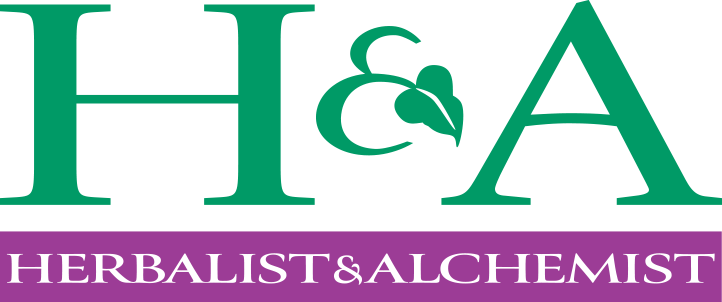Beth Lambert is the Chief Executive Officer of Herbalist & Alchemist. She also serves on the Executive Committee and Board of Directors of the American Herbal Products Association, Chairs AHPA’s Education Committee and the AHPA-ERB Foundation, and is a Board Member of the Veterinary Botanical Medicine Association.
A graduate of Wellesley College and Harvard Business School who rose to be a Managing Director at the Investment Banking firm PaineWebber, Beth made the decision to instead focus upon sustainable choices. After teaching agricultural economics at Rutgers University and being involved in community supported agriculture and permaculture, she joined H&A in 1995. Honors she has received include being named an NJ Biz Icon and AHPA Herbal Hero.
How did you make the leap from investment banker to being CEO and part owner of a company that makes herbal products?
It started with meeting Bill Mollison, one of the founders of the permaculture movement. He was a remarkable visionary and really challenged my thinking. Investment banking was exciting and gave me a broad view of many businesses as well as helped me fund my sister's college education. But through permaculture I began to see that one could make a right livelihood from making products that were good for people and good for the earth. I met like-minded people and decided that the next phase of my life would be dedicated toward these principles. When I was still in investment banking, I helped fund some friends who started a company named Permaculture Resources. Our company did design work, coordinated permaculture education with internationally known teachers, and distributed permaculture books. When I left investment banking, I helped to start, and worked as a farmer in, a community supported agriculture project based on permaculture principles. It was through one of my farming partners that I met David Winston. David asked me to evaluate his herb business and then asked me to join the company. That was the beginning of a long and personally fulfilling journey.
You spend a lot of personal time showing your horses and dogs. Is that what led to H&A’s involvement with herbal veterinary groups?
I have always loved animals. I suppose I got that from my father. I have been riding since I was three years old and we always had dogs in our lives, albeit mostly neighbor’s dogs. When I started working with David Winston, taking all of his classes and attending conferences, I started reading books about using herbs for pets. Herbalist Juliette de Bairacli Levy’s amazing insights into how animals use herbs and how she developed protocols really opened my eyes. And so, I began to use herbs with some of my animals. My brother, his two sons, and my niece are all veterinarians. It was many years ago that my brother began asking me about herbs because his clients were asking him. At first it was, “I have a client who is using this; what's it for?” And then it became, “what do you have that might help this case?” Around the same time, many veterinarians were looking for simpler, more food-based solutions for their clients. We noticed that many veterinarians were buying our products and met some at conferences where David was teaching. Through industry contracts I met Bill Bookout, one of the founders of the National Animal Supplements Council, and he introduced me to veterinarians who started the Veterinary Botanical Medicine Association. I attended some conferences and was asked to be on the VBMA board. So yes, it's certainly my love of animals that has led me down this path, but veterinarians have been on a parallel path. We just intersected.
